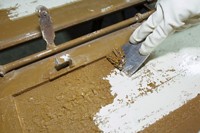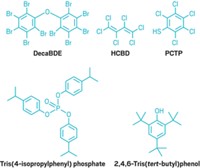Advertisement
Grab your lab coat. Let's get started
Welcome!
Welcome!
Create an account below to get 6 C&EN articles per month, receive newsletters and more - all free.
It seems this is your first time logging in online. Please enter the following information to continue.
As an ACS member you automatically get access to this site. All we need is few more details to create your reading experience.
Not you? Sign in with a different account.
Not you? Sign in with a different account.
ERROR 1
ERROR 1
ERROR 2
ERROR 2
ERROR 2
ERROR 2
ERROR 2
Password and Confirm password must match.
If you have an ACS member number, please enter it here so we can link this account to your membership. (optional)
ERROR 2
ACS values your privacy. By submitting your information, you are gaining access to C&EN and subscribing to our weekly newsletter. We use the information you provide to make your reading experience better, and we will never sell your data to third party members.
Environment
Industry To Phase Out decaBDE
Flame Retardants: Production will shift to greener alternatives
by Glenn Hess
December 18, 2009
Following negotiations with the Environmental Protection Agency, three companies have agreed to phase out production and sale of the brominated flame retardant decabromodiphenyl ether (decaBDE) for most uses within three years.
Albemarle and Chemtura, which produce decaBDE in the U.S., and Israel's ICL Industrial Products (IP), the largest U.S. importer of the chemical, say they will end sales for all remaining "essential uses" by the end of 2013.
DecaBDE, one of the world's most widely used flame retardants, has been the focus of controversy over the past several years. In letters to EPA describing their phase out plans, the companies insist that decaBDE is safe and effective, but say they will shift production to greener alternatives.
DecaBDE is a polybrominated diphenyl ether, a class of flame retardant chemicals that have been under regulatory scrutiny for their potential health risks.
"Though decaBDE has been used as a flame retardant for years, EPA has long been concerned about its impact on human health and the environment," says Steve Owens, EPA assistant administrator for the Office of Prevention, Pesticides & Toxic Substances. "Studies have shown that decaBDE persists in the environment, potentially causes cancer and may impact brain function."
The flame retardant also can degrade to more toxic chemicals that are frequently found in the environment and are hazardous to wildlife, Owens adds.
Under the companies' agreement with EPA, the phase-out will focus initially on consumer segments such as electronics and home furnishings, followed by transportation and industrial uses. Certain transportation and military uses, which may need more time to qualify suitable substitutes, have up to 12 additional months to transition to alternate flame retardants.
"While hundreds of science-based and peer-reviewed studies have shown decaBDE to be safe in use and one of the most efficacious flame retardants in the world, Albemarle is committed to delivering safe and effective products with increasingly smaller environmental footprints," says Brian Carter, global business director of Albemarle's flame retardant group.
In addition to existing substitutes for decaBDE, Albemarle has developed GreenArmor, a polymer-based flame retardant technology which is a recyclable and an eco-friendly alternative, says Tony Parnell, vice president of the company's polymer solutions division.
The phase out will allow Chemtura to continue its "longstanding efforts to protect people and property from the hazards of fire in a sustainable way," says Craig Rogerson, the company's chairman and president. "We welcome the chance to help transition our customers to other alternatives, including new products we are piloting and plan to introduce in 2010."
Ilan Elkan, vice president of ICL-IP's flame retardant business unit, says the company expects to launch new flame retardant products over the next two-to-three years to replace decaBDE in its traditional applications, and also plans to launch "other high-value 'green' products."




Join the conversation
Contact the reporter
Submit a Letter to the Editor for publication
Engage with us on Twitter